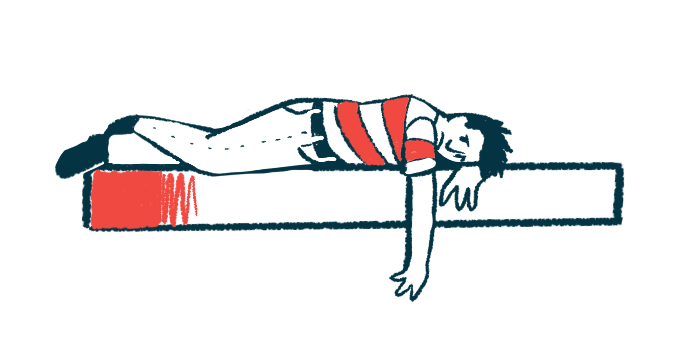Anxiety, depression tied to poorer overall health in axSpA in study
But higher resilience scores not linked to health and functioning
Written by |

Anxiety and depression, but not resilience, were found to be linked to poorer overall health and functioning in people with axial spondyloarthritis (axSpA) — mostly men and almost all Chinese — who took part in a study done by researchers in Singapore.
“Clinicians could consider routinely screening for anxiety and depression in their patients, especially in patients with more severe symptoms,” the researchers wrote, noting that “mental health conditions are often under-detected” among people with axSpA.
“Anxiety and depression were also found to impair treatment responses, which might imply reciprocal effects between anxiety and depression with disease activity,” the team added.
The study, “Association of anxiety, depression and resilience with overall health and functioning in axial spondyloarthritis (axSpA): a cross-sectional study,” was published in the journal BMJ Open.
Depression, anxiety and overall health also linked to disease activity
AxSpA is a type of arthritis in which the spine and other areas of the body become inflamed, causing pain, stiffness, and trouble with movement.
In ankylosing spondylitis, a form of axSpA, the inflammation affects mainly the sacroiliac joints, which link the spine (sacrum) and the pelvis (iliac bone).
The challenges of living with the disease can hinder people in their daily routines and take a toll on mental health. Depression and anxiety have been shown to occur frequently in people with AxSpA, and sometimes are linked to symptoms like pain.
Less is known about resilience, a capacity to withstand or to recover quickly from difficulties that “reduces an individual’s susceptibility to mental health issues,” according to the researchers.
To know more, the team looked at anxiety, depression, and resilience, and how they relate to the overall health and functioning of 296 people with axSpA — including 225 men (76%). All were treated at an outpatient clinic in Singapore. Their median age was 41, and they had the disease for a median of nine years. Specific to this study, most participants (92.6%) were of Chinese ethnicity.
The “majority of the patients in this study were Chinese, and findings might not be similar in other ethnic populations,” the team wrote.
Three-quarters of patients (75.7%) had a diagnosis of radiographic axSpA, meaning that changes to the spine could be seen on an X-ray.
The Hospital Anxiety and Depression Scale (HADS) questionnaire was used to assess anxiety and depression. Scores range from zero to 21 points, with higher scores meaning worse symptoms.
The median anxiety score was five points, with 41 participants (13.9%) scoring in the abnormal range. The median depression score was three points, with 26 people (8.4%) scoring in the abnormal range, meaning they had depression.
The 10-item Connor Davidson Resilience Scale (CD-RISC-10), in which each item is scored from zero to four for a maximum of 40 points, was used to assess resilience. Higher scores indicate greater resilience. The median CD-RISC-10 score was 29 points.
To assess overall health and functioning, the researchers used the Assessment of SpondyloArthritis International Society Health Index (ASAS HI), with scores ranging from zero to 17. Its median was four points.
As expected, higher anxiety and depression scores were linked to higher ASAS HI scores, indicating poorer overall health and functioning.
Clinicians should be aware of and screen for anxiety and depression in their patients … [and] should also factor in possible anxiety and depression when interpreting disease activities.
Higher resilience scores, in contrast, were not linked to overall health and functioning.
“Clinicians should be aware of and screen for anxiety and depression in their patients,” the researchers concluded, adding that healthcare professions “should also factor in possible anxiety and depression when interpreting disease activities.”
However, the team noted, “anxiety, depression and resilience are influenced by a multitude of dynamic factors, and their relation to overall health and functioning might change over time.”
Thus, the researchers urged “further investigation using a longitudinal study design” and suggested that “the use of self-reported outcomes instead of formal diagnoses might be more relevant” given that “psychological symptoms are often under-recognised.”






